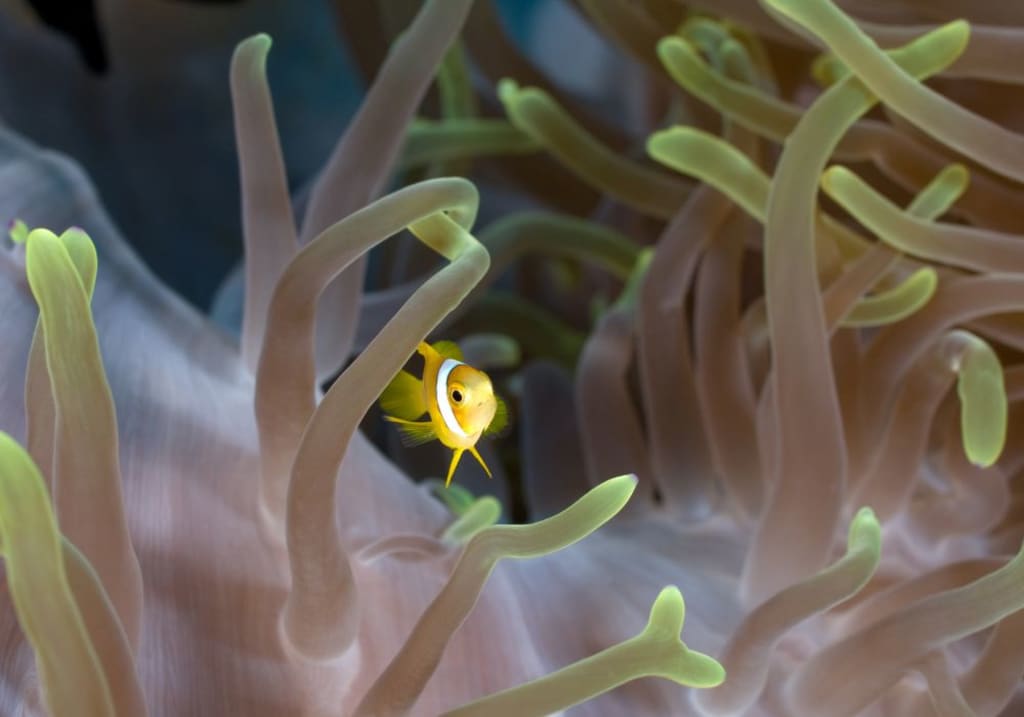
Nurturing the Next Generation of Your Aquarium
Raising baby fish, also known as fry, can be a rewarding and exciting experience for aquarium enthusiasts. Whether you're a seasoned fish keeper or just starting out, understanding the unique needs of baby fish is crucial for their survival and growth. In this comprehensive guide, we'll explore the essential steps to ensure your baby fish thrive in their aquatic environment.
Understanding the Basics of Baby Fish Care
Baby fish have specific requirements that differ from adult fish. They are more delicate, sensitive to water conditions, and have different dietary needs. As a responsible fish keeper, it's essential to familiarize yourself with these differences to provide the best possible care for your fry.
Establishing a Suitable Environment
Creating a safe and stable environment is the foundation of successful baby fish care. Here are some key considerations:
- Tank size: Baby fish require a smaller tank or a dedicated fry tank to maintain optimal water quality and prevent overcrowding.
- Water parameters: Maintain stable water temperature, pH, and water hardness levels suitable for the species of fish you're raising.
- Filtration: Use a gentle filtration system that won't create strong currents or suck up the fry.
- Lighting: Provide appropriate lighting for the species, ensuring it's not too bright or too dim.
- Hiding places: Include plenty of live plants, decorations, or spawning mops to provide hiding spots for the fry.
Feeding Baby Fish
Proper feeding is crucial for the growth and development of baby fish. Here are some guidelines to follow:
- Feed a varied diet: Offer a mix of high-quality flakes, micro-pellets, and live or frozen foods like baby brine shrimp, micro-worms, or infusoria.
- Feed small amounts frequently: Baby fish have small mouths and digestive systems, so provide small portions several times a day.
- Avoid overfeeding: Excess food can lead to water quality issues and health problems in the fry.
- Introduce new foods gradually: Slowly introduce new foods to avoid digestive issues or stress.
Maintaining Water Quality
Keeping the water clean and well-oxygenated is crucial for the health and growth of baby fish. Here are some tips:
- Perform regular partial water changes: Change 25-50% of the water weekly to remove waste and replenish fresh, dechlorinated water.
- Use a siphon to remove uneaten food and waste: Be gentle to avoid sucking up the fry.
- Monitor water parameters: Test the water regularly for ammonia, nitrites, nitrates, and pH levels.
- Maintain a stable temperature: Sudden temperature fluctuations can stress the fry.
Preventing Diseases and Parasites
Baby fish are more susceptible to diseases and parasites than adult fish. To minimize the risk, follow these guidelines:
- Quarantine new fish: Introduce new fish to the tank gradually to prevent the introduction of diseases or parasites.
- Maintain good water quality: Proper water changes and filtration help prevent the buildup of harmful substances.
- Observe the fry for signs of illness: Look for signs like white spots, fin rot, or lethargy, and treat promptly if necessary.
- Use medications cautiously: Some medications can be harmful to baby fish, so consult with a veterinarian or experienced fish keeper before treating.
Specific Care for Different Fish Species
While the general principles of baby fish care apply to most species, some fish have unique requirements. Here are a few examples:
- Livebearers give birth to fully developed fry, so they require a breeding trap or a separate tank to prevent the adults from eating the babies.
- Feed the fry a diet rich in protein, such as baby brine shrimp or micro-worms.
- Egg-laying fish scatter their eggs in the aquarium, and the fry hatch after a few days.
- Use a spawning mop or dense plants to collect the eggs and prevent the adults from eating them.
Livebearers (Guppies, Mollies, Platies)
Egg-Layers (Tetras, Corydoras, Barbs)
- Feed the fry a diet of infusoria or micro-worms until they're large enough for baby brine shrimp.
- Cichlids are often aggressive and may eat their own fry, so it's essential to separate the parents from the babies.
- Provide plenty of hiding spots and feed a varied diet of micro-pellets, flakes, and live foods.
Cichlids (Angelfish, Discus, Oscars)
Troubleshooting Common Issues
Even with the best care, baby fish may encounter challenges. Here are some common issues and how to address them:
- Cannibalism: Some fish species may eat their own fry. Separate the parents from the babies or provide plenty of hiding spots.
- Stunted growth: Insufficient food or poor water quality can lead to stunted growth. Ensure the fry are getting enough food and maintain optimal water conditions.
- Fin and body deformities: These can be caused by genetic factors, poor water quality, or nutritional deficiencies. Maintain stable water parameters and provide a varied diet.
- High mortality rates: Sudden spikes in ammonia or nitrites, disease outbreaks, or stress can lead to high mortality. Perform water changes, treat any illnesses promptly, and minimize disturbances to the fry.
Conclusion
Raising baby fish can be a rewarding and educational experience. By understanding their unique needs and providing a safe, stable environment, you can help your fry grow into healthy adult fish. Remember to be patient, observe the fry closely, and make adjustments as needed. With proper care and attention, you'll be able to enjoy watching your baby fish thrive and mature in your aquarium.
About the Creator
Hasan
Welcome...
In this site of mine you can learn amazing things and many information that you don't know so please subscribe to my site.
Enjoyed the story? Support the Creator.
Subscribe for free to receive all their stories in your feed. You could also pledge your support or give them a one-off tip, letting them know you appreciate their work.






Comments
There are no comments for this story
Be the first to respond and start the conversation.